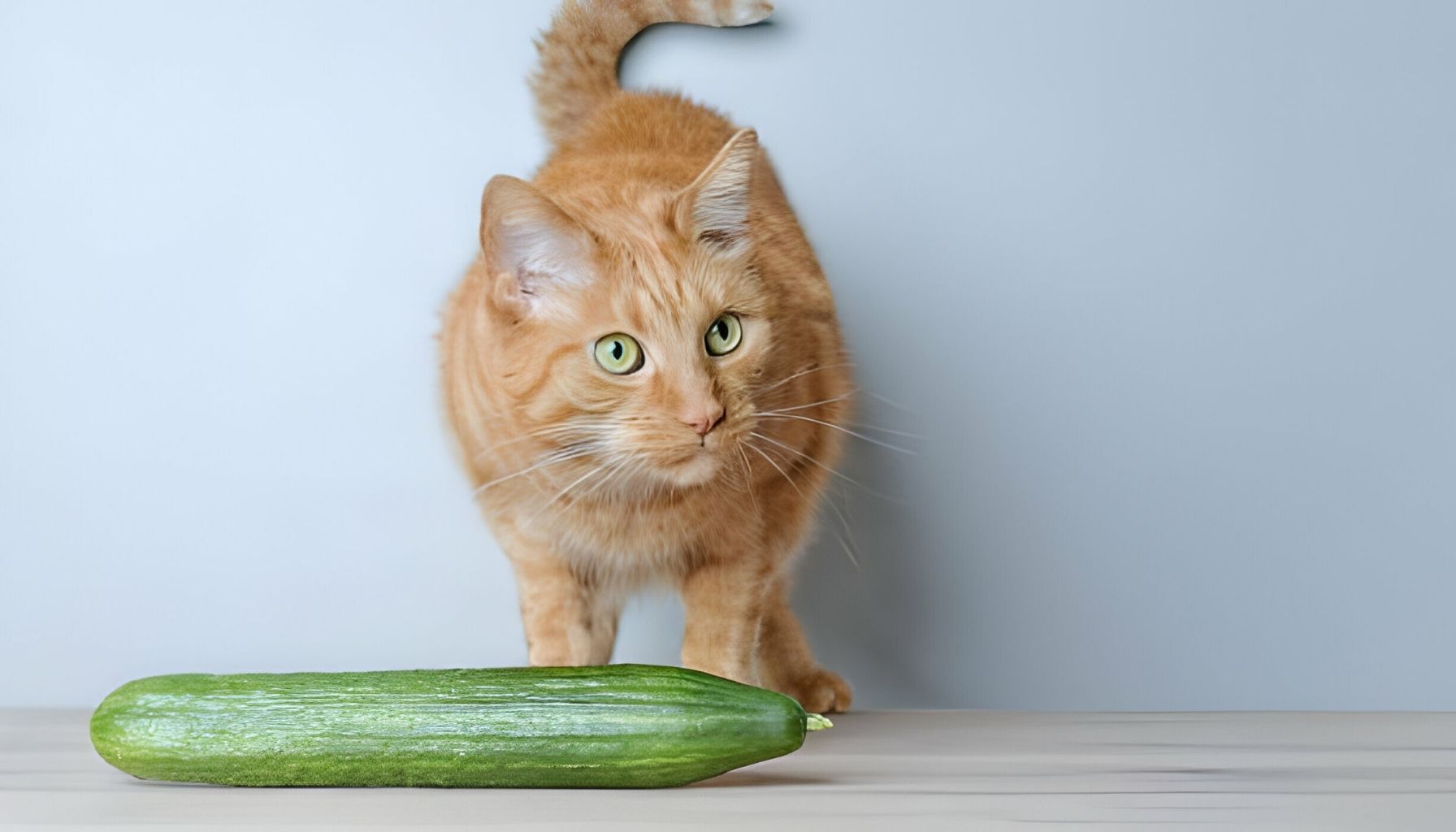Have you ever seen the odd peculiarity where a homegrown cat experiences a cucumber and jumps up high with dread? An exhibition has acquired viral distinction on the web, however behind this odd response lies a mix of cat brain science and sense. We should investigate Why cats are scared of cucumbers, and what it uncovers about our catlike companions.
Instinctual Dread Response
The primary component to consider in understanding why cats dread cucumbers is their instinctual dread response. Cats, in the same way as other creatures, are designed to answer unforeseen improvements, particularly those that sneak up on them. This response is established in their endurance impulses.
- Cucumbers look like snakes: Cats are developmentally modified to be careful of snakes. A cucumber’s stretched shape and calm situation can set off a cat’s snake-mindfulness instinct.
- Startle reaction: The unexpected appearance of a new item, similar to a cucumber, can set off a cat’s frightened reaction, making them bounce or run away.
- Safety in their domain: Cats think about their home climate as a protected region. A surprising item like a cucumber upsets this feeling of security.
This response, while entertaining to people, is a characteristic safeguard system for cats. It features their sharp mindfulness and dexterity, significant for endurance in nature.
The Component of Surprise
One more basic viewpoint to consider is the element of surprise. Cats are exceptionally careful creatures, and their response to cucumbers frequently happens because the vegetable is put behind them without their insight.
- Sudden appearance: The position of the cucumber while the cat is eating or diverted prompts a sudden and surprising encounter.
- Lack of sound or fragrance: Not at all like hunters, cucumbers don’t make commotion or have serious areas of strength, permitting them to go undetected until outwardly seen by the cat.
- Natural circumspection: Cats are normally mindful and inquisitive animals. The unexpected appearance of any item could evoke a comparable response.
Understanding this part of cat conduct is fundamental, as it features their requirement for a safe and unsurprising climate. Such astonishments, while innocuous, can cause pressure and tension in cats.
Tactile Discernment and Reaction
Cats have profoundly evolved faculties, and their response to cucumbers additionally integrates with their sensory discernment and reaction. Their sharp vision and aversion to changes in their current circumstance play a critical part.
- Visual identification: Cats have a wide field of vision and rush to see changes in their current circumstance, prompting a quick reaction.
- A heightened feeling of smell: While cucumbers might not have serious areas of strength for to people, cats can distinguish even unobtrusive scents, adding to their frightened response.
- Sensitivity to new items: Any new item presented in a cat’s current circumstance can prompt a careful or surprised response, not simply cucumbers.
Perceiving the responsiveness of cats to their environmental elements can assist catting proprietors in comprehending and regarding their pets’ requirements for a steady climate.
Mental Impact
Ultimately, it’s vital to consider the psychological impact that such panic strategies can have on cats. While the underlying response could appear to be entertaining, it can prompt longer-term pressure and tension in cats.
- Trust issues: Startling cats with cucumbers or different items can prompt a breakdown in trust between the cat and its owner.
- Long-term pressure: Rehashed openness to such panics can cause long-haul pressure and uneasiness, influencing the cat’s general well-being.
- Behavioral changes: Unpleasant encounters can prompt changes in a cat’s way of behaving, like expanded hostility or withdrawal.
As cat proprietors, it’s critical to establish a safe and trust-filled climate for our pets. Understanding the effect of our activities on their psychological wellness is crucial for their prosperity.
The response of cats to cucumbers, while entertaining from the outset, opens up a more profound comprehension of cat conduct and brain research. This peculiarity features their instinctual reactions, need for an anticipated climate, and aversion to their environmental elements. As dependable pet people, it’s vital to regard and cater to these parts of our catlike companions’ tendencies. How about we appreciate our cats for their novel attributes and guarantee their current circumstance is protected and peaceful?

